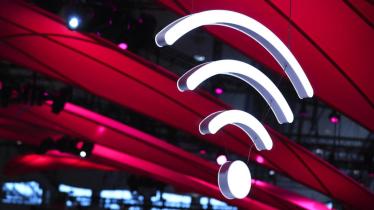The Prime Minister Wi-Fi Access Network Interface (PM Wani) programme and the concept of public Wi-Fi in general is no more relevant in the country given the spread of affordable 4G and 5G services, telecom operators have told the Telecom Regulatory Authority of India (Trai).
The rollout of public Wi-Fi hotspots is moving at a slow pace, with fall in average data usage per Wi-Fi hotspot to a few MBs, even as telcos focus on expansion of wireless Internet services in rural areas.
One of the reasons for the project not taking off as expected is the high cost of connectivity through Internet leased lines charged by telecom service providers and Internet service providers from public data offices. Telcos say, since the services are commercial in nature and different from retail, therefore, it makes sense for them to charge commercial rates as the usage of the data under commercial will be higher.
These higher costs and fall in usage patterns make it difficult for public data offices (PDOs) to have a sustainable business model from the PM-Wani programme.
“In our opinion, PM-Wani service is no more relevant. The inherent flaws in this model caused by mobile data availability and its low costs led to the failure to take off of the model,” Reliance Jio told Trai.
According to Jio, PDOs could have been useful in the 2G-3G era of mobile services, when mobile penetration was increasing but mobile data was priced at around Rs 250 per GB and there was a need to search for a Wi-Fi access point for basic data needs. However, PM-Wani was implemented in the 2020s when 4G data was ubiquitous, data costs were around Rs 10 per GB.
The trigger for the telecom operators to comment on the relevance of PM-Wani was Trai’s recent proposal, as part of the draft telecommunication tariff (70th Amendment) Order, 2024, which aims at reducing broadband connection rates charged by telcos and Internet service providers (ISPs) from PDOs under PM Wani.
PDOs are local shops/ retailers, kiranawalas, storekeepers, etc that deploy public Wi-Fi hotspots and connect the last mile under PM Wani.
Trai has proposed that for the purpose of providing PM-WANI scheme, PDOs may be charged tariff rate at par with the tariffs for retail broadband (FTTH) connections, for the capacities for which the said retail tariff is being offered to subscribers by the service.
Currently, under commercial rates, telcos charge them upto Rs 8 lakh per year for supplying Internet-leased lines for bandwidth. Data sachets under PM Wani are being provided to end users at Rs 5-10 per day.
Telcos, however, have voiced against any kind of amendment to the telecom tariff order (TTO), citing that the tariffs must remain under forbearance.
“We are surprised to see the Draft TTO on the tariff aspect of PM-Wani scheme, which has never been discussed with the stakeholders. We understand that before issuing this Draft-TTO, Trai should have done consultation on desirability of PDO service, in the light of current proliferation of 4G/5G services and availability of data services at cheapest rate in the world,” said the Cellular Operators Association of India (COAI).
According to Bharti Airtel, the draft TTO amendment is the incorrect remedy when it comes to the failing / diminishing interests of consumers with regard to public WiFi hotspots.
Jio said if the draft TTO is implemented, a PDO can get unlimited data at Rs 399 and sell at least 1 GB data to (say) 1,000 customers in a month at the below market cost of Rs 10 per GB (mobile data pack for 1 GB is for Rs 19), making a windfall profit of over 2000%. This would deprive the TSP a possible revenue of Rs19,000 and government its revenue share by selling the same number of 1 GB data packs.
Further, telcos argued that since PM-Wani is financed through the Universal Service Obligation Fund (USOF), which is already supported by contributions from telcos, no additional burden should be imposed on them.
The Broadband India Forum (BIF), which represents tech firms, has opposed the telcos’ arguments. It said an intervention in tariffs for broadband connectivity to PDOs is definitely required and the unduly high tariffs must be brought down to a reasonable and comparable level of tariffs of same service being provided by TSPs/ISPs for FTTH.
The ILL (internet leased line) connectivity is not required by PDO for PM-Wani. “This artificially created barrier of ILL connectivity having extra-ordinarily high tariffs has resulted in a very anomalous situation,” BIF said.
Infact, DoT had also communicated to Trai that in the name of commercial agreement, many times TSPs/ ISPs insist on PDOs to connect public Wi-Fi Access Points using expensive Internet Leased Line instead of regular FTTH broadband connection.
According to the DoT PDO booklet, the typical annual broadband cost for PDO is Rs 6,000. However, there is a huge price difference in broadband connectivity cost, which is between Rs 4 lakh and Rs 8 lakh annually being asked from PDOs, BIF said.
The government data as on July 22 suggests that there are 207,642 deployed PM-Wani Wi-Fi hotspots in the country and 199 PDOAs and 111 app providers. The same is below the target set by National Digital Communications Policy, 2018 to enable deployment of 5 million public Wi-Fi hotspots by 2020 and 10 million by December 2025.
Further, for Digital India 2030 mobile and broadband policy objectives, the Bharat 6G Vision has set the goal of 50 million public WiFi hotspots by 2030.
